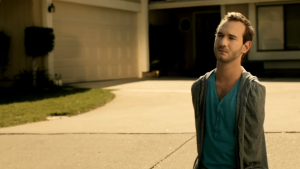We say that curiosity killed the cat, but it is also what allows us to grow, discover the world and widen our horizons. Consider children: they don’t accept the world as it is. They ask questions; they try to understand, to learn. When I spend time with children, I am astonished by their curiosity and inquisitiveness. They don’t care if it is appropriate or if they will be ridiculed when they ask questions. On the contrary, one cannot deny their boldness in asking questions.

Read more:
Motivational speaker Nick Vujicic uses his disability to inspire
Many people lose that ability as they grow older. With age, they become less and less amazed, they question fewer things. They act as if everything were obvious and nothing were surprising as if they had “read the book of truth to the end” (author unknown). How about you?
Think for a moment — how many times lately did something surprise or delight you? How often do you feel that childhood curiosity?
The ability to be amazed, to question the situation, and the desire to understand are essential elements of the creative process. If you want to approach life creatively, you must reawaken that childhood curiosity and ask questions. Question what seems obvious.
For example, if you plan to change your job, list all the things that are important to you, and then take it a step further and ask yourself the following questions:
- Why is this important to me?
- What will I give up for it?
- Why does this carry such a high value for me?
- Is this really important to me?
Do the same when you are looking for your significant other. I remember a conversation with a woman who had an entire list of expectations for her future husband (handsome, athletic, likes sushi, skis, has no debt, makes a lot of money, masculine, caring, etc.). Think about what you want in the other person, and then honestly answer the question of whether those features are really important to you and why. Perhaps you will find out you can pass on some of them.
It doesn’t matter what you are pondering — a new job, a future husband/wife, a move to another town, a vacation. It’s good to question your assumptions. Discovering what you don’t want is just as important as finding out what you do want.
I will share with you the strategy I use to see if I really want something.
- Step 1. Name what you want to do (i.e., change your job, be more assertive).
- Step 2. Why is this important to you? Name all the reasons why you want this.
- Step 3. Examine each reason and ask yourself how important it is on a scale from 1 to 10, where one is least important and 10 very important.
- Step 4. Think and write down what would happen if you don’t do what you named in step 1.
- Step 5. Think what sacrifice it will require from you to do step 1. Do the reasons in step 2, rated in step 3, give you enough motivation to sacrifice what is needed?
When you go through all the steps and you answer all the questions, you will see more clearly where you are going and what you will face getting there. As a plus, clarifying your reasons for making the change will increase your motivation, which will help you to start acting.

Read more:
Short on time? Top tips from a life coach to gain control of your day
This is also a good strategy to employ when someone comes to you for advice. Instead of telling them what you would do, ask these questions:
Why is this important to you?
What will you sacrifice for it?
Why does this have such a high value for you?
Is this really important for you?
What will happen if you don’t reach your goal?
This article was originally published in the Polish Edition of Aleteia.

